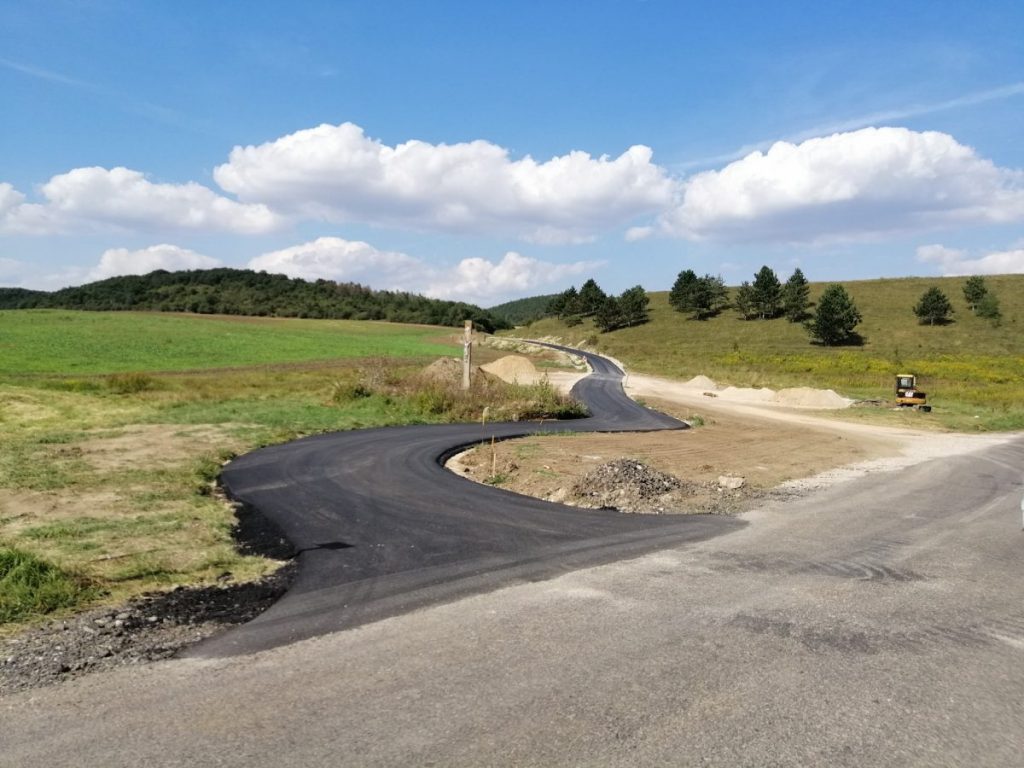The https://english.atlatszo.hu use cookies to track and profile customers such as action tags and pixel tracking on our website to assist our marketing. On our website we use technical, analytical, marketing and preference cookies. These are necessary for our site to work properly and to give us inforamation about how our site is used. See Cookies Policy
Only a few hundred meters of new bike path built in the EU-supported project
The new, EU-funded cycle path between the settlements of Tát – Mogyorósbánya – Péliföldszentkereszt looks potholed and fragmented in photos shared on Facebook. We went to check out what kind of bike lane was built from 166 million forints.

The councils of the town of Tát and the village of Mogyorósbánya formed a consortium to create and develop a bike-friendly route. The planned cycle path was supposed to connect the existing section of the EuroVelo 6 route running parallel to road 117, between the town centre of Tát and Mogyorósbánya, and the pilgrimage site of Bajót-Péliföldszentkereszt.
The project – intended to improve cycling conditions in the region – was supported by a 157,466 million HuF EU grant.
The public procurement tender for building the cycle path was published in May 2019, and time companies were invited to take part (Silocem kft., BETONSPED Transzportbetongyártó és Szállítmányozó Kft, Kavics Trade kft, Mapex-Bau, Eszköz Partner Kft.), at the end three of them made an offer. The Nyergesújfalu based Mapex-Bau won the contract of 120 million Huf.
As part of the altogether 166 million Huf, mostly EU funded project ( TOP-3.1.1-16-KO1-2017-00002), it seems that only a 7 kilometer section was built from the cycling lane. Yet the implementation plan ordered from DE-MA Projekt Kft. by the council of Tát, published on the town’s website, contradicts this.
This document contains a detailed description of what is being built and how, while the public procurement newsletter refers to “a mixed function bike friendly road” also used by other vehicles such as tractors, but it also mentions a separate cycle path too. The cycling lane is nothing but a part of the path indicated with yellow road paint on the already existing surface.
Based on this, a total of 1.7 km of roads were built, with only painting done on the remaining 5.2 km. The section used by for cyclists exclusively is only 781 meters.
The original construction contract had to be later modified for several reasons. The contractor indicated that in some places there are so many pavement defects on the road designated for motor traffic that the condition of the road was already so bad that the bicycle track marking could no longer be placed, so it was not possible to carry out the work covered by the contract in full. In fact the whole road surface would have needed to be repaved. The photos shared on social media must heve been taken of this particular section.
The winner of the construction contract, Mapex-Bau is not a “public procurement star”, although the family-owned company with 25 employees generates a turnover of 1 billion a year. In 2019 the were given 102 762 400 Huf support by the Ministry of Innovation and Technology for technological modernisation and for increasing efficiency. Six months earlier the same ministry allocated a grant of 155 030 907 HuF to the company.
Mapex is often invited to apply for public tenders, frequently together with Amalfi Hungária and Real-Rent which companies often win these contracts. One of the owners of Real Rent is Roland Sebestyén, who has been referred to by the investigative project Direkt36 as “a business partner of the Prime Minister’s family”. One of the owners of Mapex-Bau is CEO of a different company in which Roland Sebestyén’s business partner was one of the owners. Sebestyén commented on this to Direkt36 stating that this is only a coincidence.
Written by Zsuzsa Zimre, translated by Gabriella Horn. Click here for the Hungarian version of this article.


